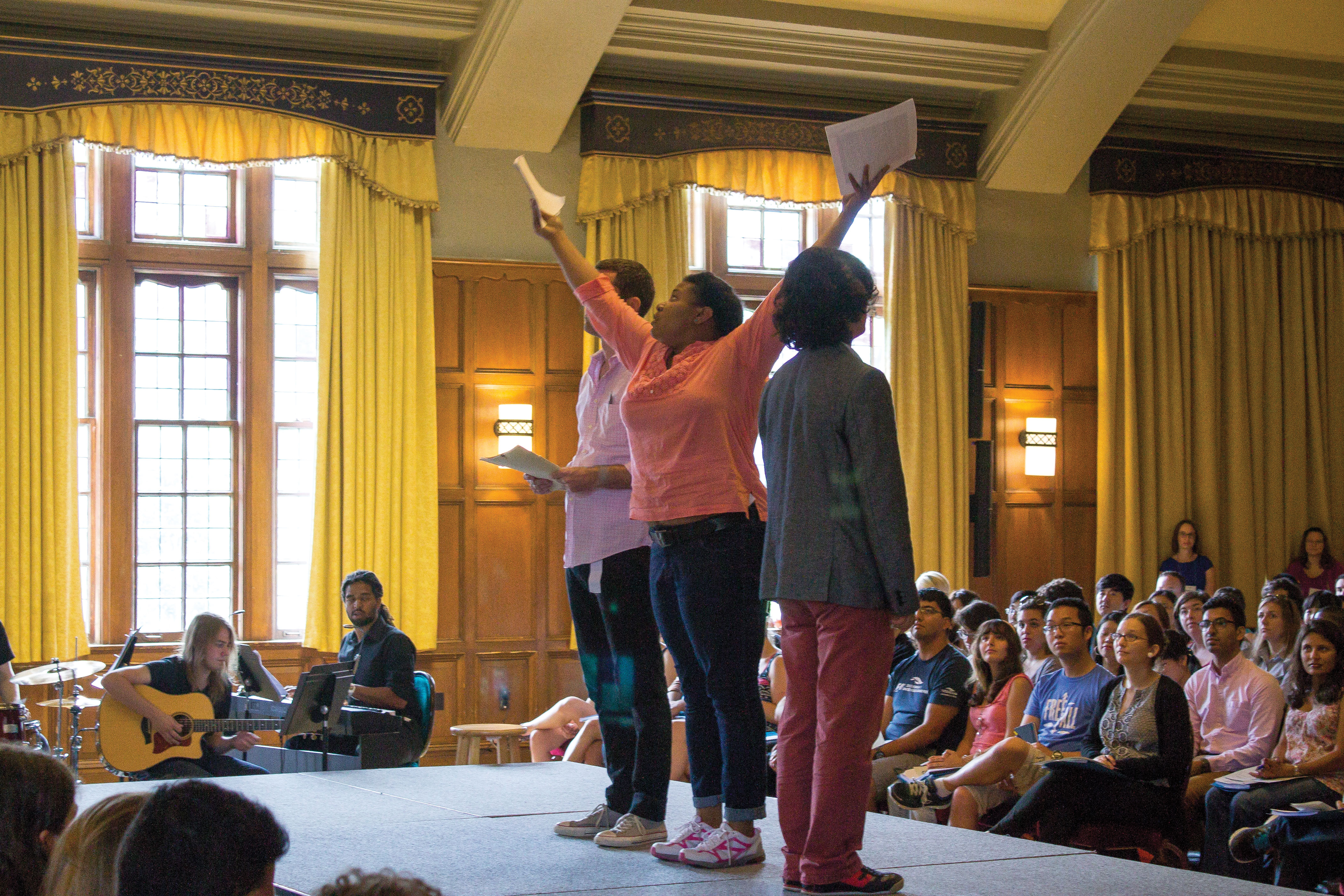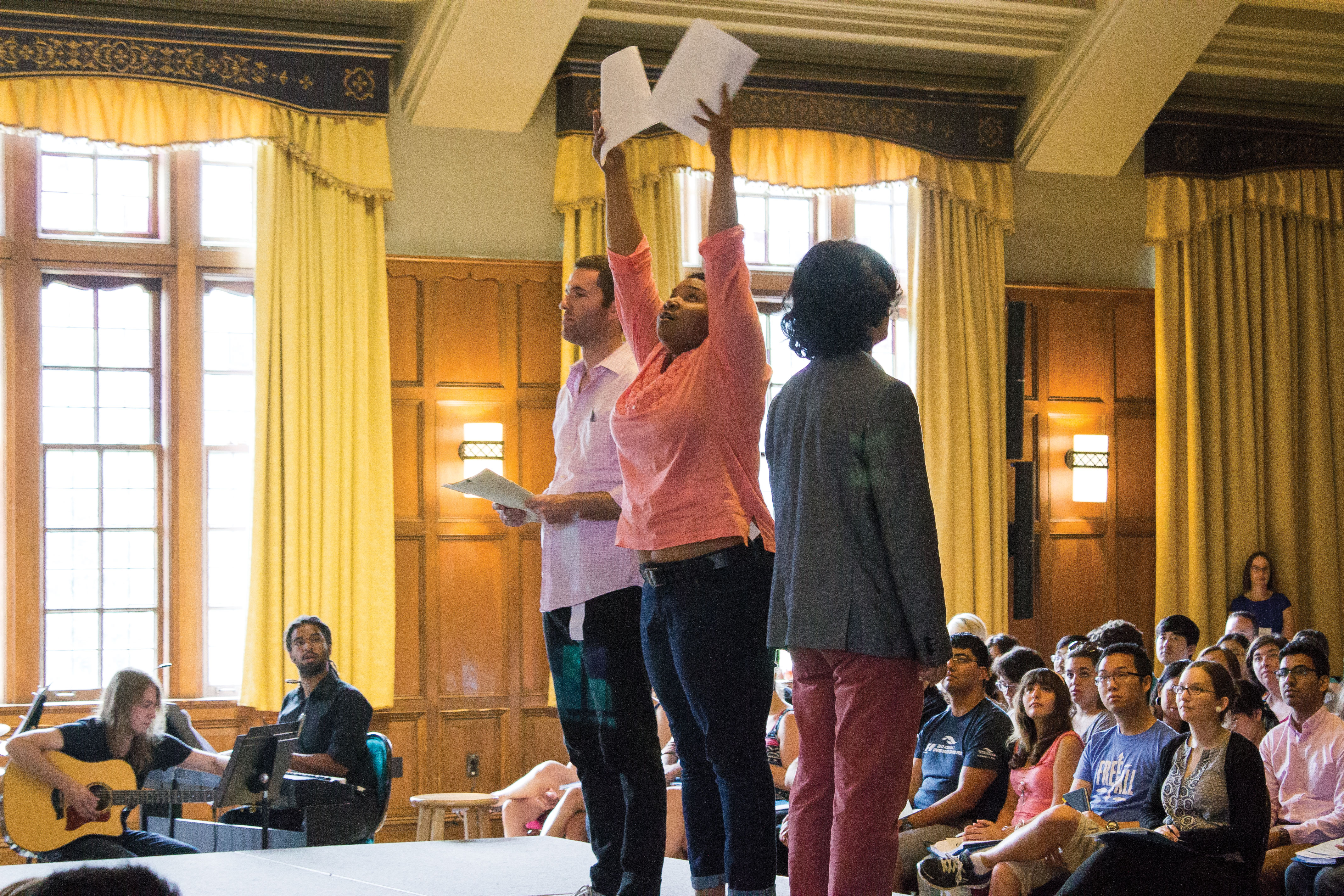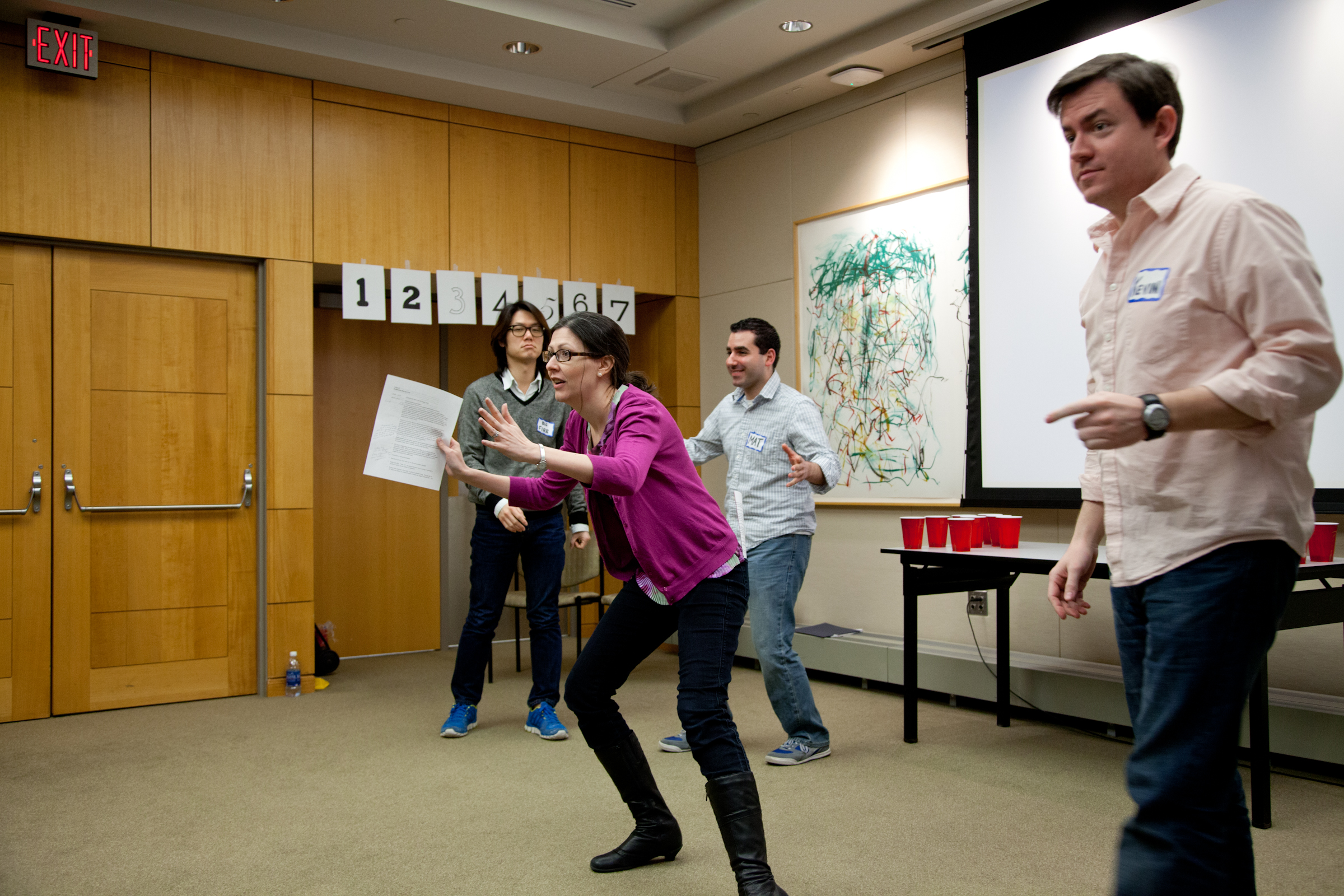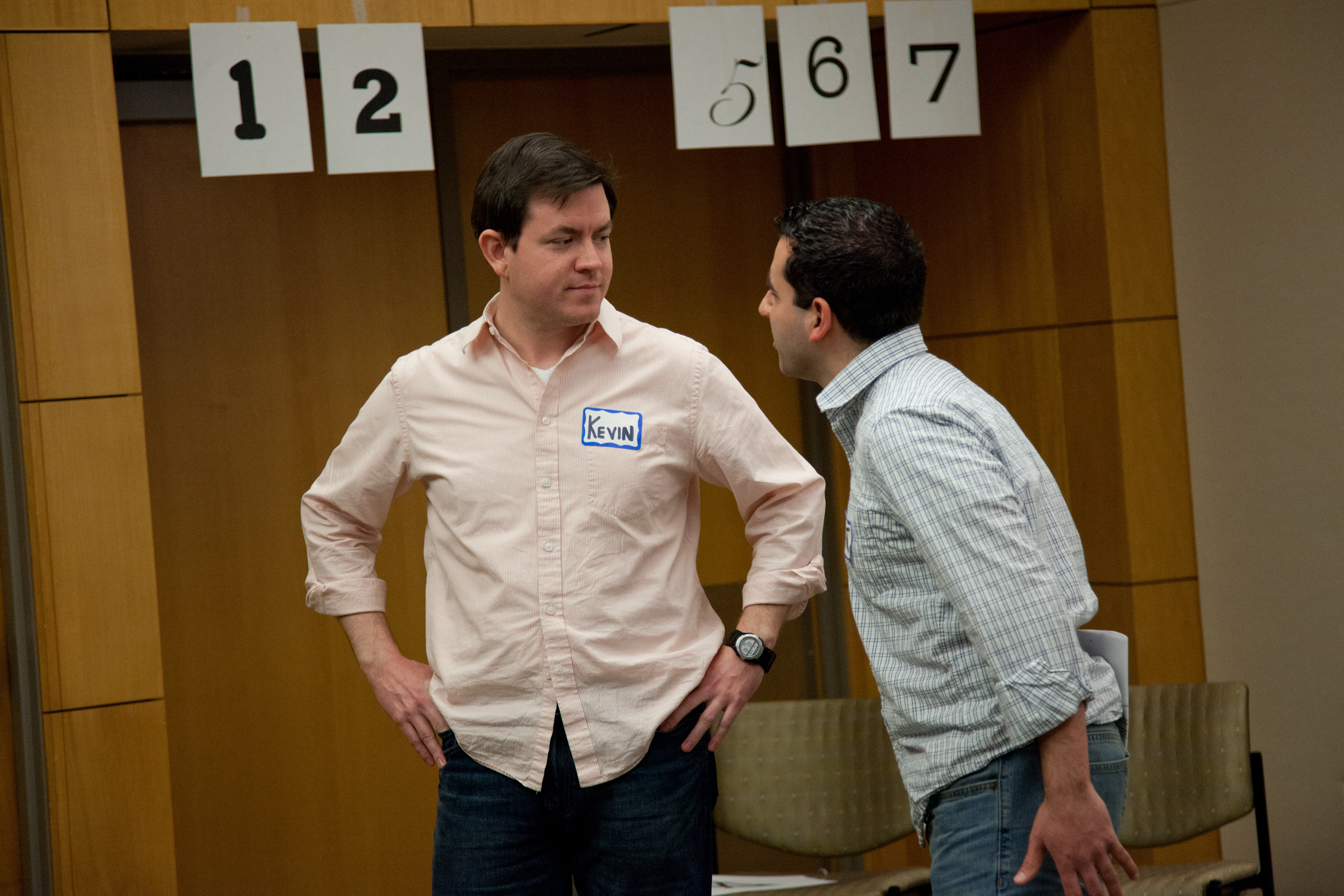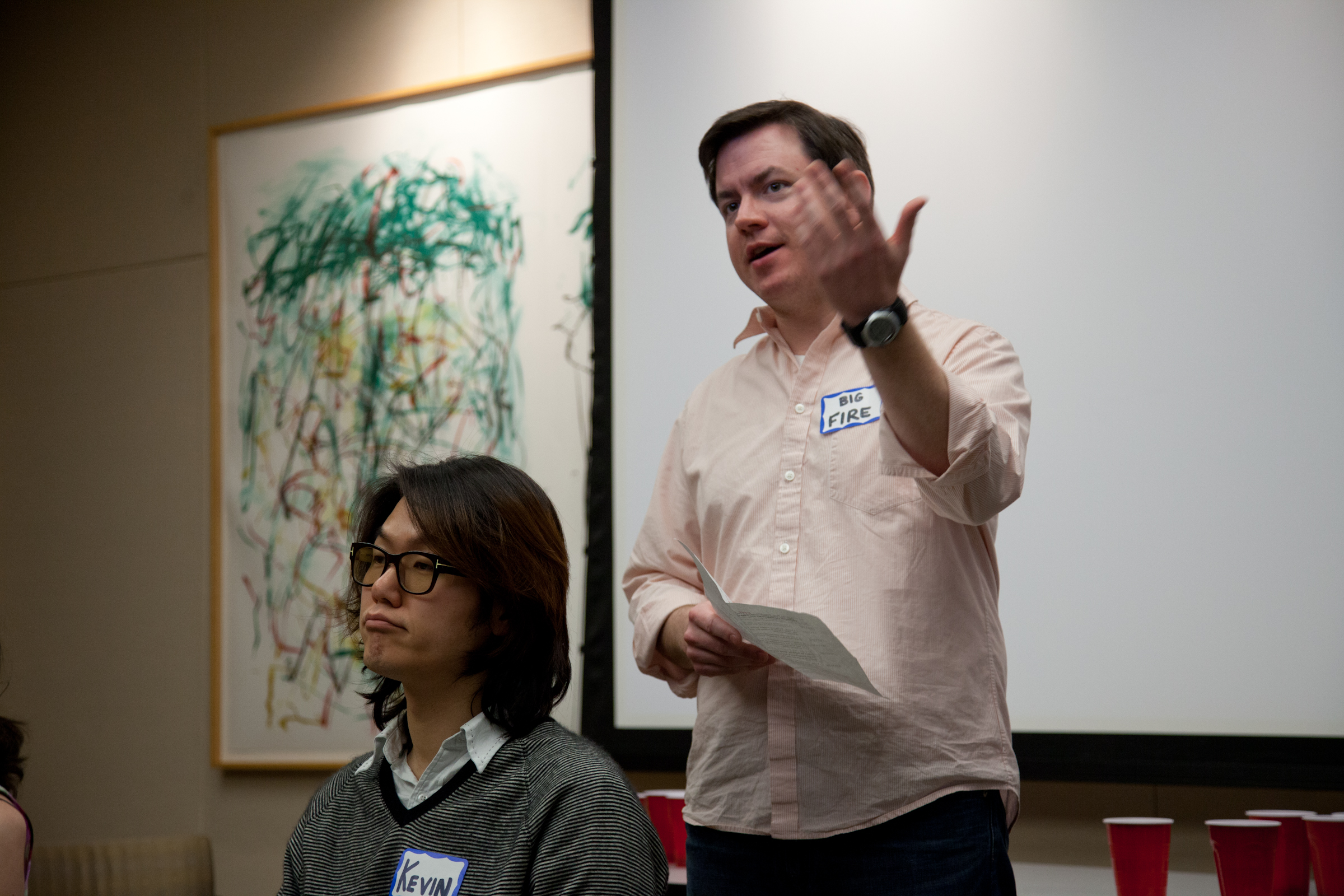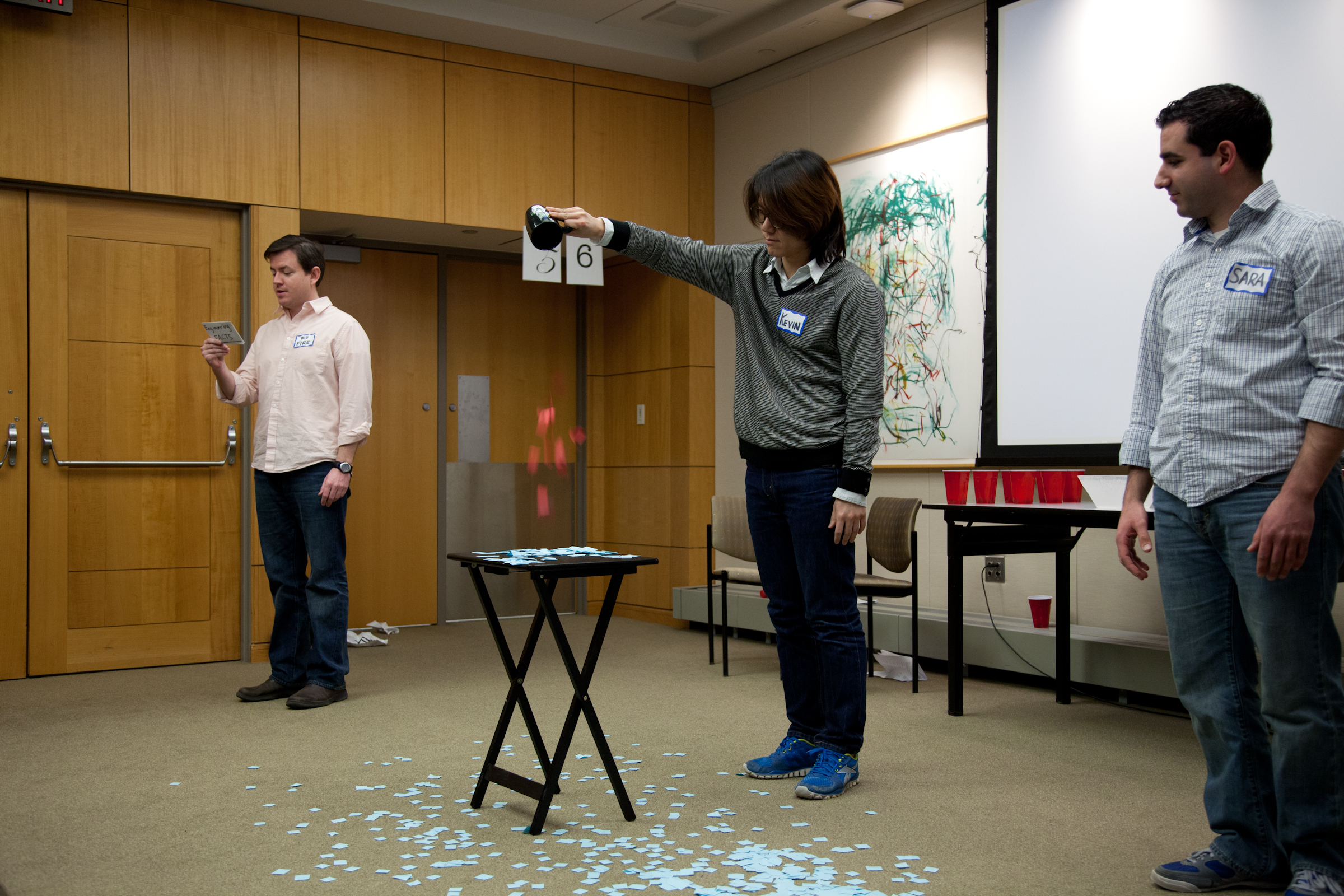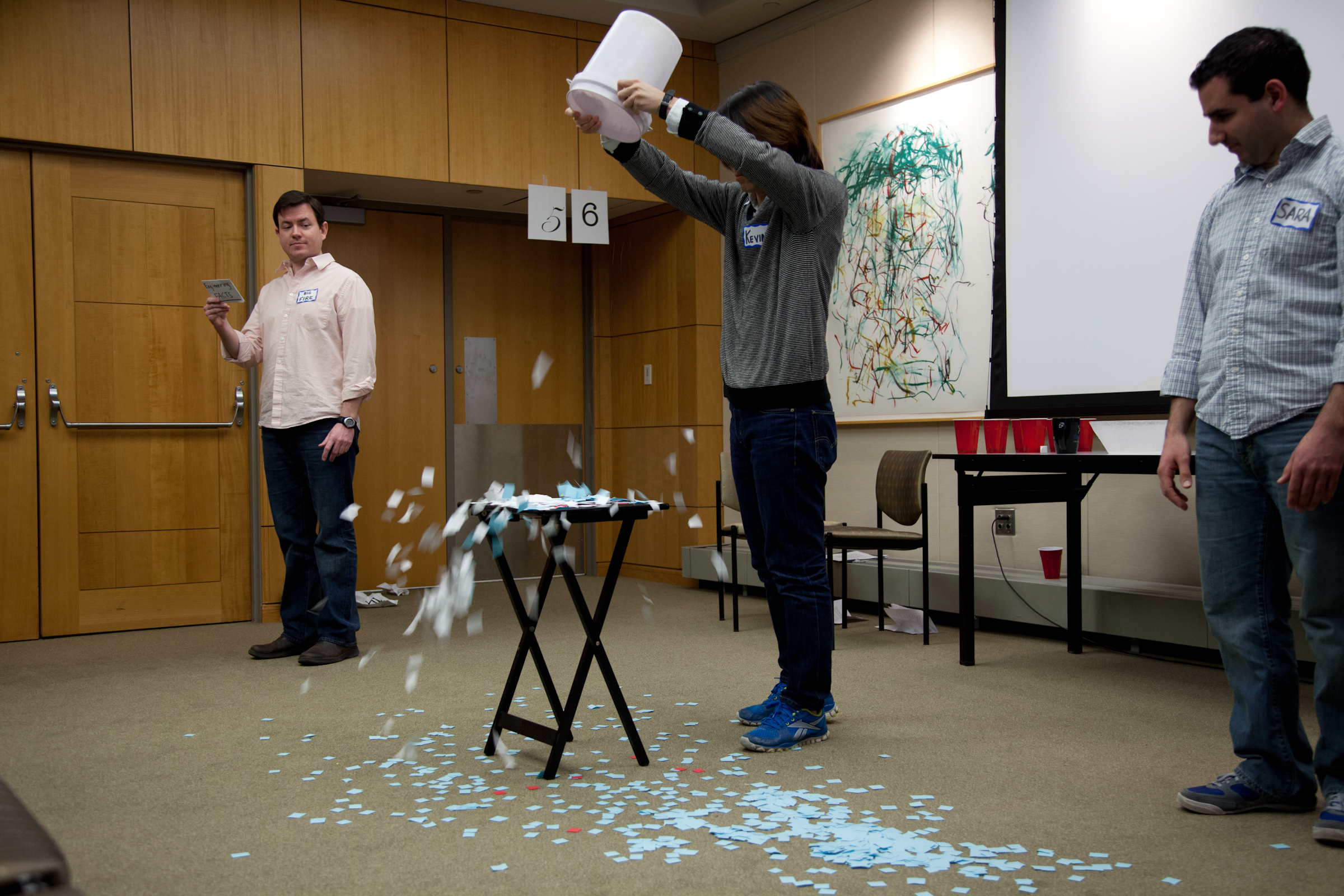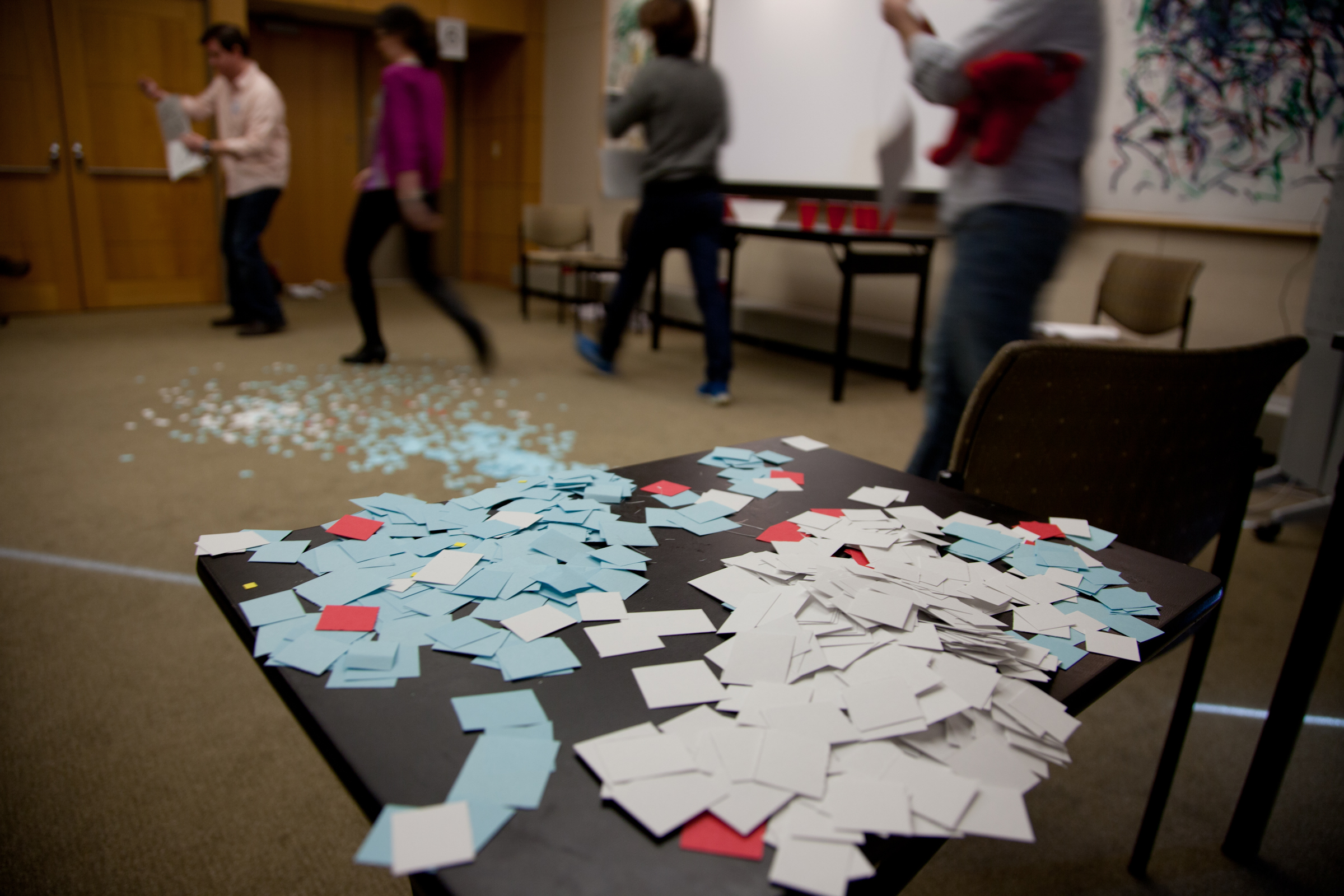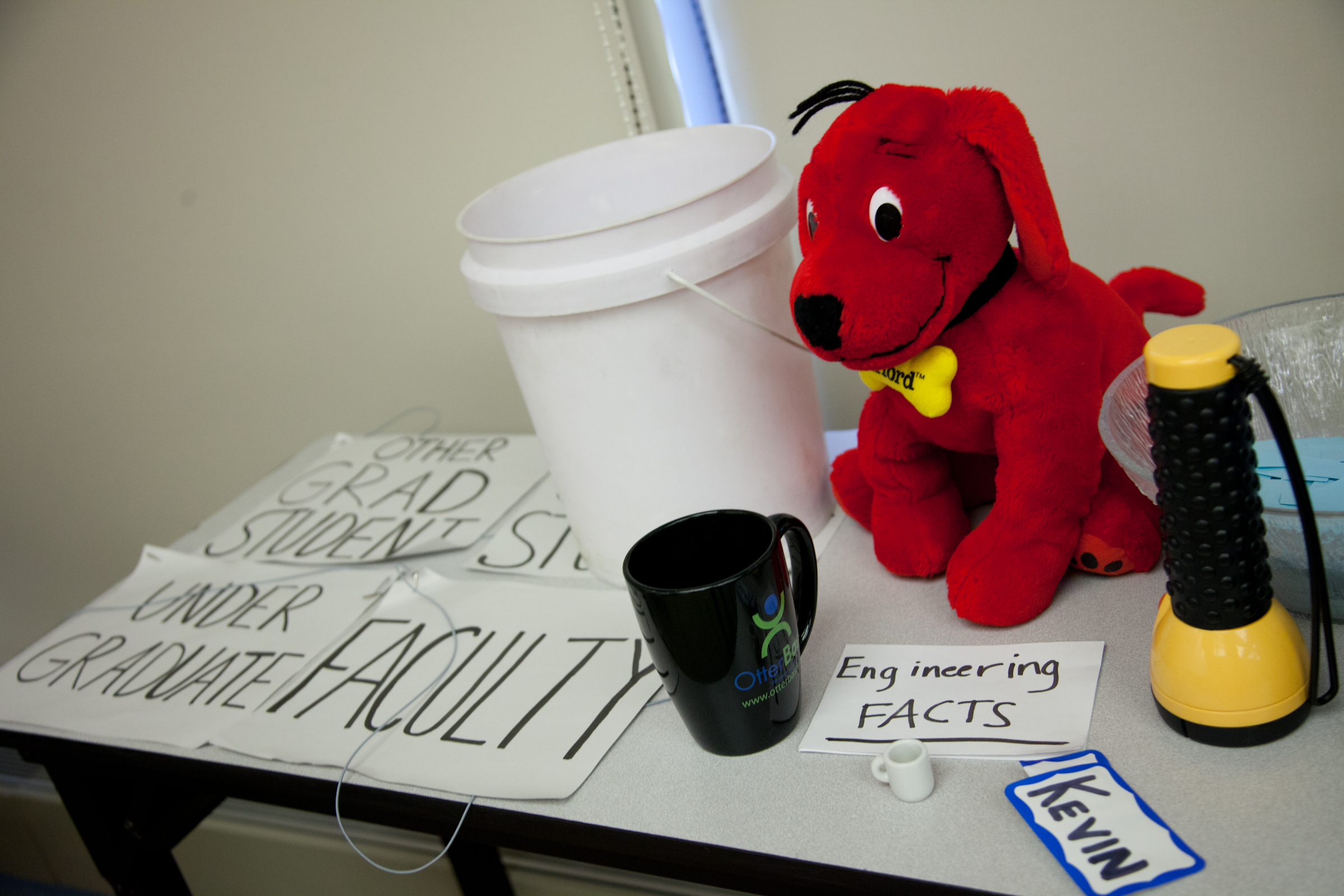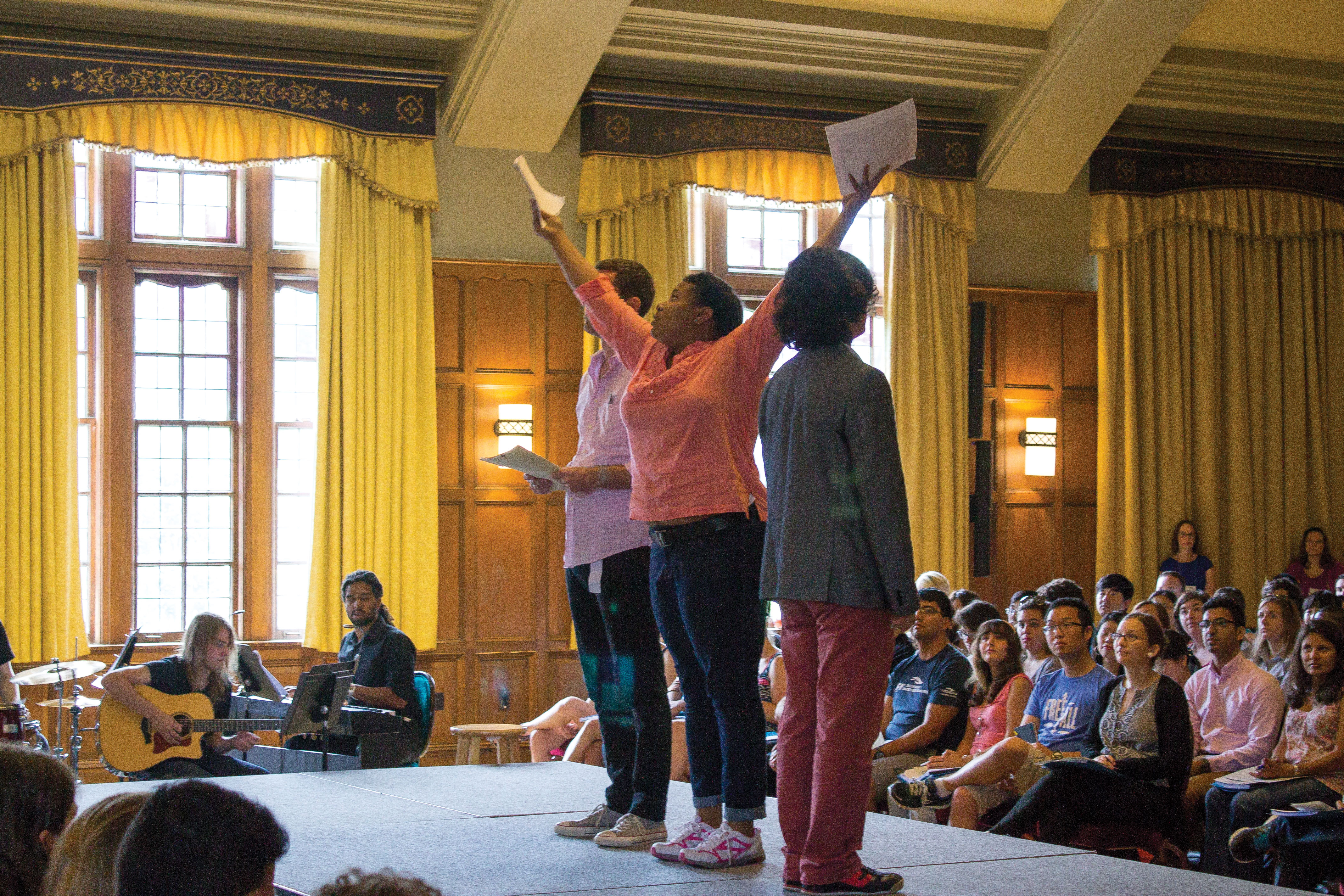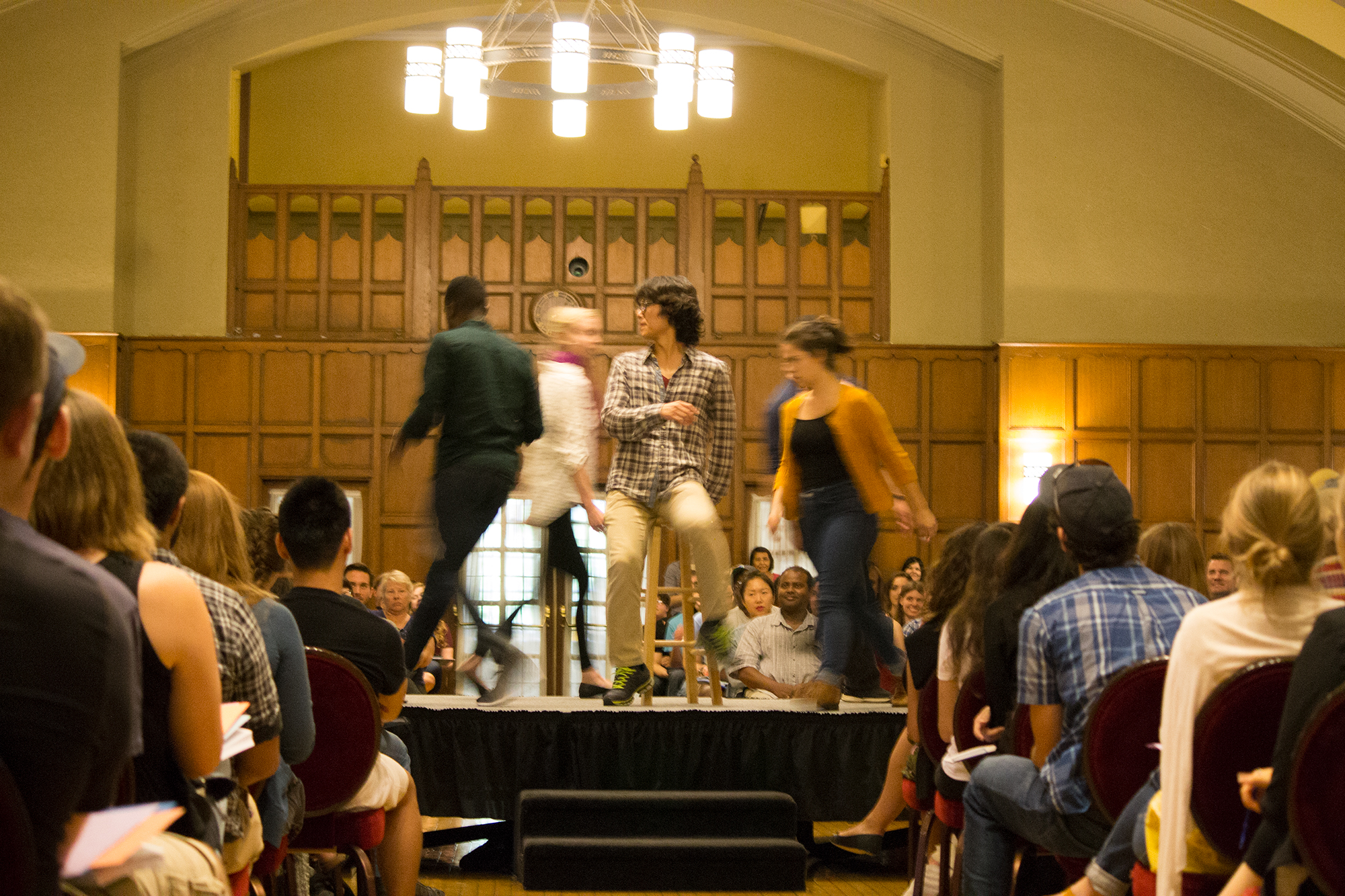Developed from academic research and informed by specific lived experiences, 7 into 15 highlights challenges and inequities that differently affect individuals in higher education. Marked by alternating moments of humor and poignance, the energetic collection of sketches focuses on issues regarding social identity, role clarity, institutional climate, and academic belonging. Through facilitated conversation, audiences are prompted to consider the ways in which they can more meaningfully contribute to an equitable and inclusive learning environment for students, peers, and colleagues. This session is appropriate for faculty, graduate student instructors, and academic leaders.
The typical session length is 120 minutes. 7 into 15 is only offered as an in-person session.
**The theatrical portion of this session includes descriptions of challenges students encounter in higher ed related to race, gender, sexuality, mental health, socioeconomic status, and international student status.
Notes on performance: The session is modular and can be tailored to fit a variety of specific learning goals by choosing from the following vignettes.
Vignette Descriptions:
- "Ass Out of You and Me"
- Three students describe specific moments where their instructors made an assumption about their capability as a learner based on an aspect of their identity.
- "Don't!"
- A group of instructors list off policy after contradictory policy about academic integrity until their students are buried under a big pile of don't. The problem is they don't understand why they can't or shouldn't.
- "Every Time a Bell Rings"
- A graduate student instructor gamely attempts the task of managing all of their students' requests, demands, and needs at once. It's a no-win situation.
- "Imposter, Fraud, Fake, Charlatan, Phony, Sham, Me"
- Four graduate student instructors publicly maintain a positive outlook about their teaching while secretly revealing their insecurities during a grading session.
- "In Between"
- When a class discussion turns to race, white students look to a student of color for the answers. The spotlighted student elaborates on the problematic position this puts them in.
- "Missed Connections"
- A graduate student instructor reflects on the challenges and joys of facilitating student learning.
- "The Phenomenology of Academic Time"
- Even as they attempt to achieve work/life balance, an instructor's responsibilities pile up.
- "Practice Teaching: Who Do You Think You Are?"
- An instructor experiments with their approach to classroom teaching by trying out different personas. In each iteration, they imagine their students' reactions, and struggle to come off as engaging instead of irritating.
- "Smile"
- As negative incidents on campus accrue, students with different social identities speak out about the impossibility of maintaining a smile.
In this session, participants will:
- Increase their capacity for teaching in equitable and inclusive ways by:
- Identifying behaviors that negatively affect classroom and institutional climate.
- Considering equity-focused teaching principles that can create more positive learning experiences and outcomes for students.
- Brainstorming specific strategies they can implement in their teaching contexts.
- 456 views

